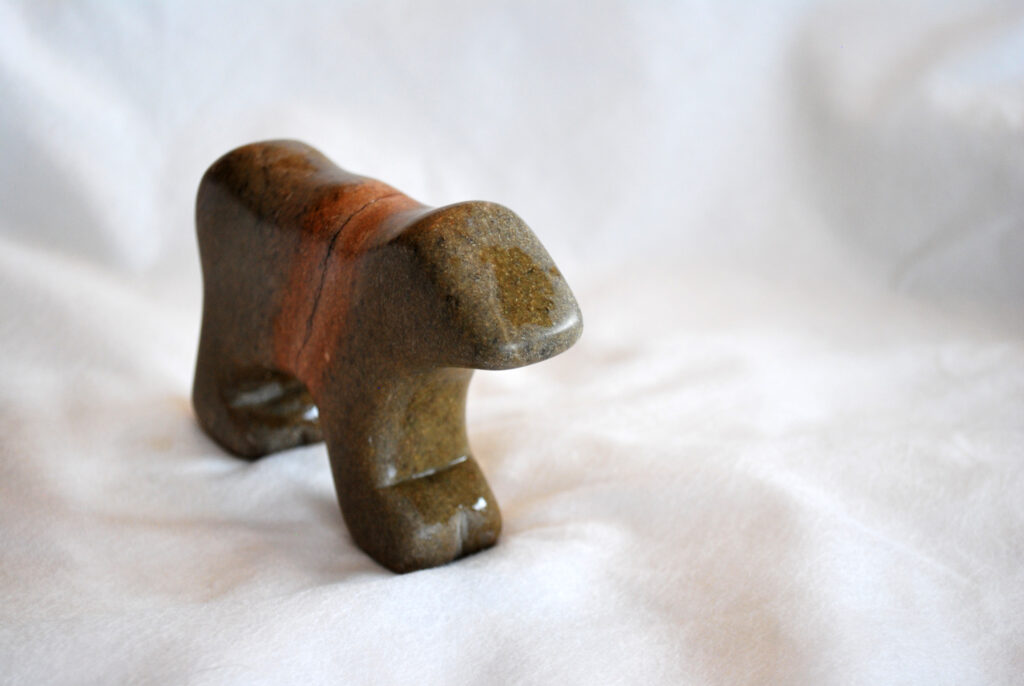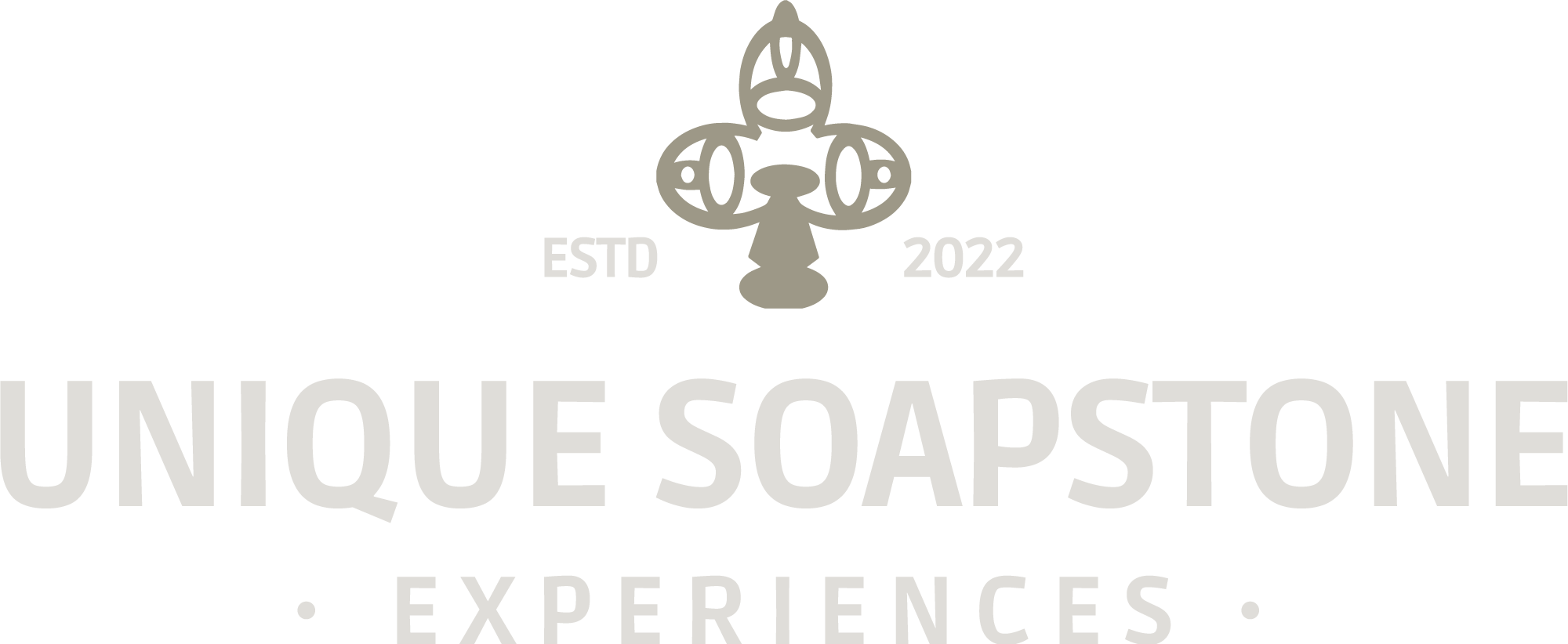
In today’s fast-paced world, our minds are constantly bombarded with information and distractions. As a result, finding time to slow down and focus on the present moment can feel nearly impossible. This is where meditation comes in—a practice that helps quiet the mental noise, bringing us back to a state of calm and centeredness. At Unique Soapstone Experiences, we integrate meditation into our workshops to encourage a more mindful and peaceful approach to creativity. Beyond the sculpting experience, meditation is a valuable tool in everyday life, enhancing both artistic expression and personal well-being.
Meditation and Creativity
Creativity thrives when the mind is free from distractions. However, our typical mental state is often cluttered with thoughts, to-do lists, and external stressors. Meditation offers a way to clear that clutter, helping individuals tap into deeper levels of imagination and artistic expression. Research has shown that meditation fosters divergent thinking—the type of thinking that allows for the generation of multiple ideas, making it key for problem-solving and creativity (Colzato et al., 2012).
One of the primary ways meditation enhances creativity is by improving focus. In a mindful state, we become fully present in our creative process, whether that’s sculpting, painting, or writing. We’re less likely to be sidetracked by self-doubt or perfectionism, allowing our natural creativity to flow. Meditation also helps lower the mental barriers we often create for ourselves, such as the fear of failure or negative self-talk. By quieting those inner critics, participants in our workshops find themselves more open to experimentation, curiosity, and the freedom to try new techniques without judgment.
In addition to reducing mental clutter, meditation promotes a state of “flow”—a concept introduced by psychologist Mihaly Csikszentmihalyi, referring to the experience of being completely absorbed in an activity. Artists, musicians, and athletes often describe being in a “flow state” when their performance feels effortless and deeply satisfying. Meditation practices, especially mindfulness, make it easier to enter this state, where time seems to vanish, and the creative process feels natural and uninhibited (Csikszentmihalyi, 1990).
Everyday Benefits of Meditation
While the creative advantages of meditation are powerful, its benefits extend far beyond the art studio. Incorporating regular meditation into daily life can have transformative effects on emotional well-being, physical health, and interpersonal relationships.
One of the most well-known benefits of meditation is its ability to reduce stress. Studies have shown that meditation lowers cortisol levels—the hormone associated with stress—and helps regulate the body’s response to anxiety-inducing situations (Goyal et al., 2014). For those who deal with high-pressure environments or personal stress, meditation offers a calming reset, bringing balance to both the mind and body.
Meditation also enhances emotional regulation, helping people develop greater resilience in challenging situations. When practiced consistently, it can lead to increased self-awareness, allowing individuals to recognize and respond to their emotions rather than being driven by them. This emotional clarity can improve personal relationships, as it fosters empathy and patience—key qualities for effective communication and conflict resolution.
For those looking to boost their productivity, meditation has been linked to improved concentration and decision-making skills. By training the mind to stay focused on the present moment, meditation can reduce procrastination and distractions, leading to more effective task management. In fact, a study conducted by the University of Washington found that workers who practiced mindfulness meditation were more focused, less stressed, and better able to complete tasks efficiently compared to their non-meditating counterparts (Levy et al., 2012).
Additionally, meditation is often recommended as part of a holistic approach to maintaining mental health. It can alleviate symptoms of anxiety, depression, and even physical conditions like high blood pressure and chronic pain (Kabat-Zinn, 1990). By providing a space for introspection and relaxation, meditation allows for greater self-care and balance in everyday life.
Integrating Meditation into Workshops
At Unique Soapstone Experiences, we believe that creativity, mindfulness, and inner growth are deeply interconnected. Before participants begin working on their sculptures, we guide them through a short meditation to center their thoughts and bring their focus into the present moment. This practice helps them engage with the stone in a more intentional way, heightening both their creativity and their ability to stay in the flow of the sculpting process.
In this space, participants are encouraged to explore their creativity without judgment or self-imposed limitations. By combining meditation with the tactile art of sculpting, our workshops become more than just an artistic endeavor—they become a mindful practice where participants can reconnect with themselves, reduce stress, and cultivate a sense of peace.
Meditation is a powerful tool that enriches both creative pursuits and everyday life. By reducing stress, fostering emotional balance, and enhancing focus, meditation allows for a more mindful, fulfilling approach to artistic expression and personal growth. Whether you’re sculpting stone or navigating the complexities of modern life, the clarity and calm that come from meditation can lead to profound transformations in how we think, feel, and create.
Bibliography
Colzato, L. S., Ozturk, A., & Hommel, B. (2012). Meditate to create: The impact of focused-attention and open-monitoring training on convergent and divergent thinking. Frontiers in Psychology, 3, 116. https://doi.org/10.3389/fpsyg.2012.00116
Csikszentmihalyi, M. (1990). Flow: The Psychology of Optimal Experience. Harper and Row.
Goyal, M., Singh, S., Sibinga, E. M. S., et al. (2014). Meditation programs for psychological stress and well-being: A systematic review and meta-analysis. JAMA Internal Medicine, 174(3), 357-368. https://doi.org/10.1001/jamainternmed.2013.13018
Kabat-Zinn, J. (1990). Full Catastrophe Living: Using the Wisdom of Your Body and Mind to Face Stress, Pain, and Illness. Delta.
Levy, D., Wobbrock, J. O., Kaszniak, A., & Ostergren, M. (2012). The effects of mindfulness meditation training on multitasking in a high-stress information environment. In Proceedings of Graphics Interface 2012, pp. 45–52.


